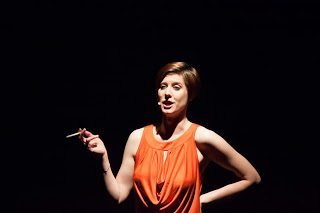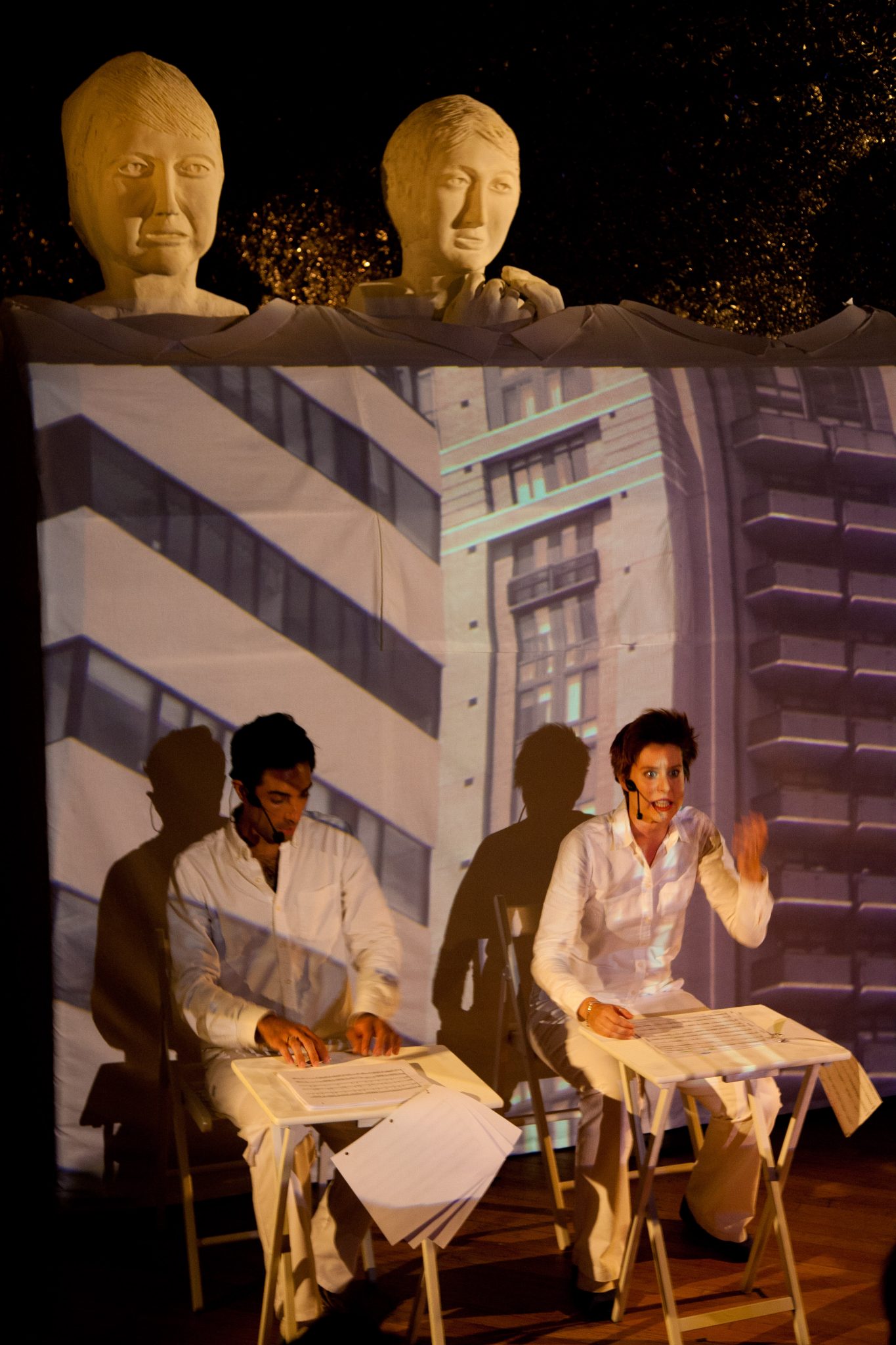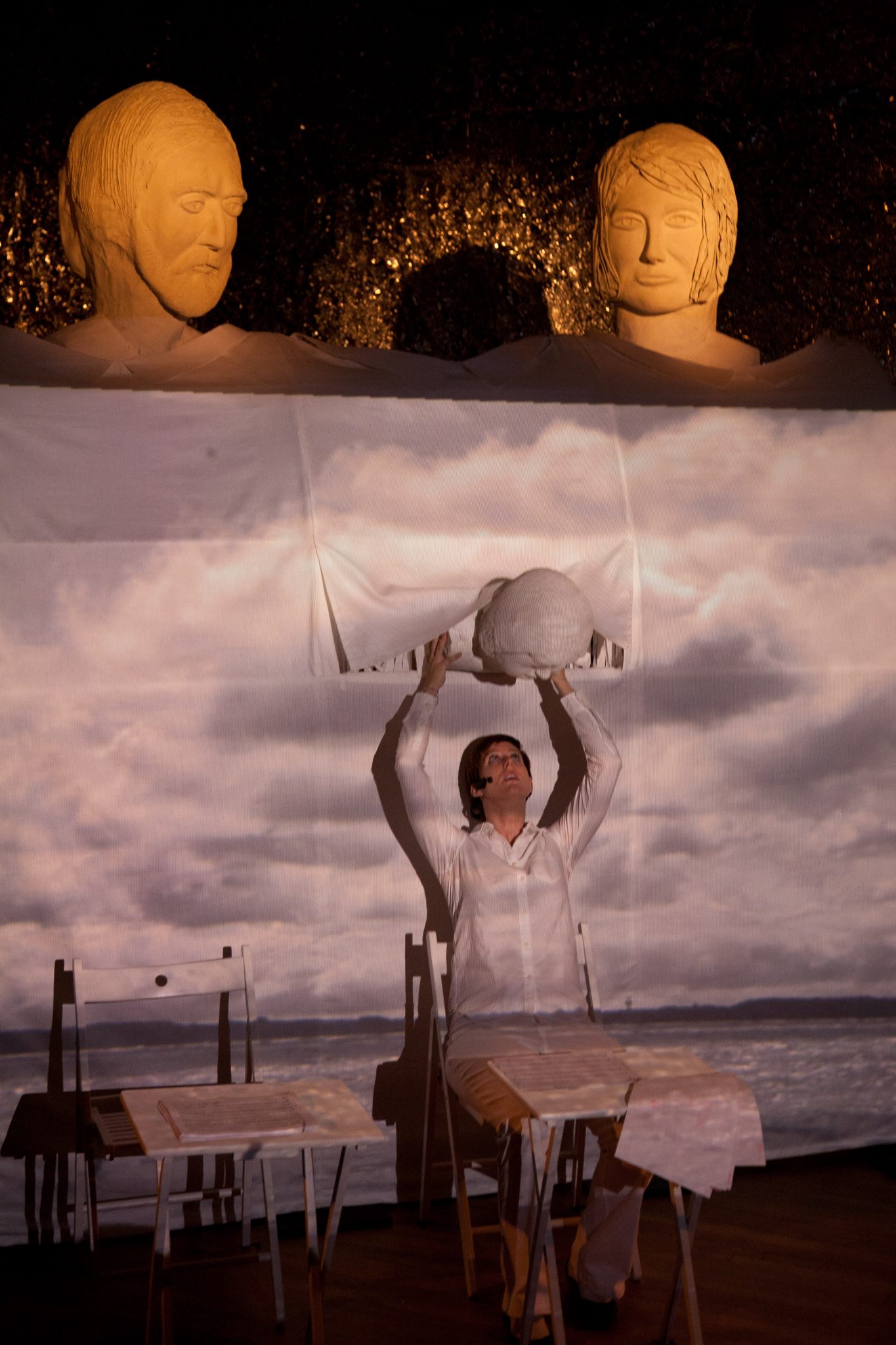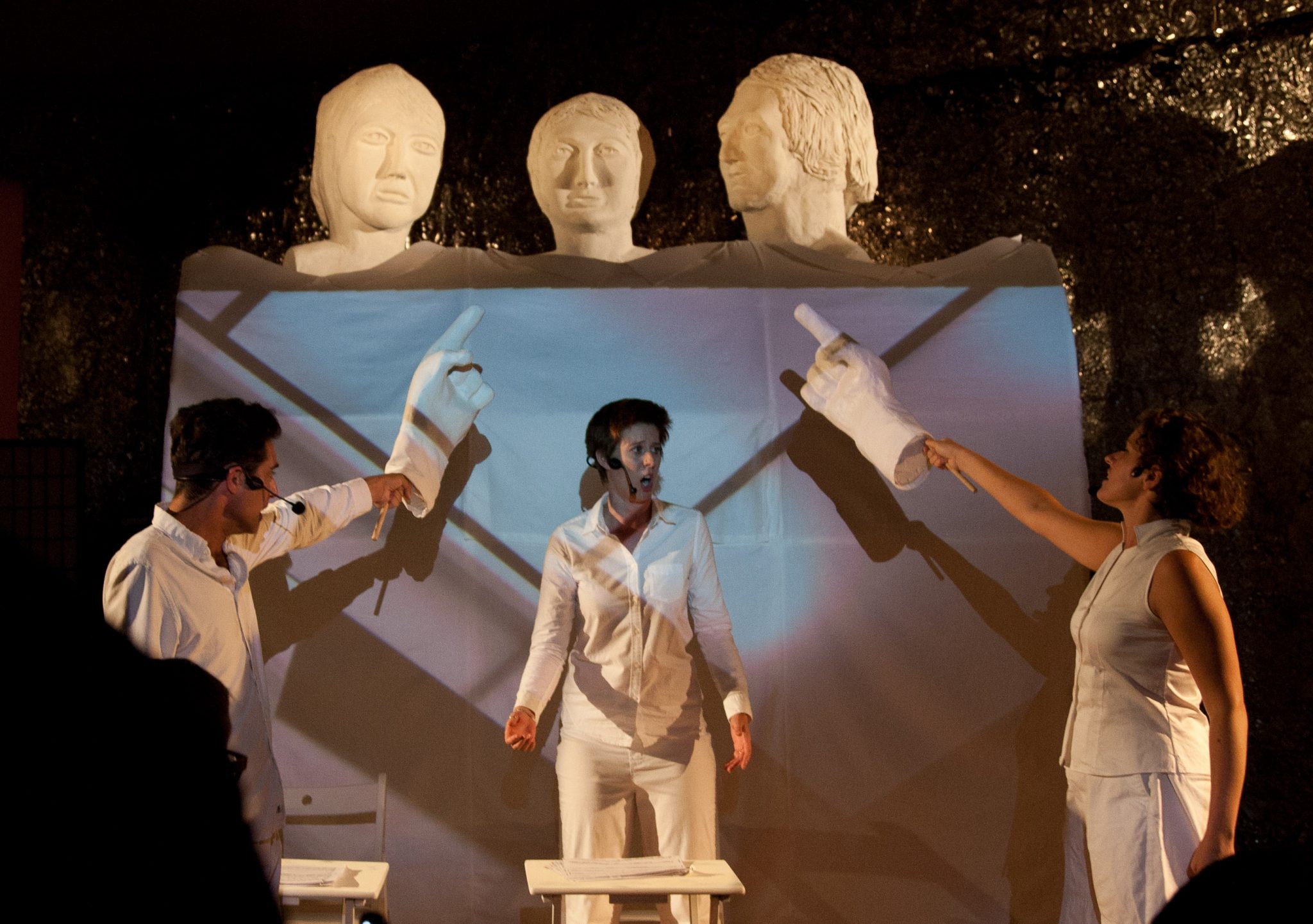As a reviewer, I enjoyed the overall experience of Rhymes With Opera‘s recent production of David Smooke‘s nonopera “Criminal Element.” I reveled in the performance and afterward coalesced my thoughts into a review. As a singer, I thought, “I have to know more!” Soprano Elisabeth Halliday was kind enough to share her thoughts with me after their performances in NYC and Baltimore, MD. Halliday is a champion of new music and a colleague that wears many hats of the new music cycle. She consistently performs at a very high level, commissions composers through her various performing ensembles, and makes opportunities happen for other musicians specifically with Rhymes With Opera’s inaugural Summer Workshop. Let’s not dilly-dally, on with the interview!

Specializing in Modern and Contemporary Classical Music, Elisabeth has premiered the works of more than a dozen American composers. She is a member of the contemporary opera company Rhymes With Opera which commissions new operas and performs in New York City and Baltimore. Elisabeth is also a member of the duo Emerging Voices, with classical saxophonist Zach Herchen, which commissions and records new music for their unique instrumental combination. Elisabeth has sung with Chelsea Opera, Village Light Opera, Ashcan Orchestra, Experiments in Opera, NYsoundCircuit, West End String Quartet, Terry Quinn Productions, Rhymes With Orchestra and more.
Congratulations on your performances of “Criminal Element.” I know that you worked on the David Smooke nonopera when Rhymes With Opera originally performed it in 2011. There certainly weren’t any ten-foot tall puppets at that point. What was the experience like of bringing it to a fully staged version?
It was so exciting to get to go back to a piece and really bring it to its full potential. In new music, one so rarely gets to work on anything a second time (written in 2011? We weren’t even born then!). Rhymes With Opera hopes that this will become the norm rather than the exception – that, with all our “main-stage” performances, pieces will get a concert performance first and then a more fully realized performance later – with staging, costumes, puppets, dancers, who knows! We are repeating this process in our upcoming season, bringing back Adam Matlock’s “Red Giant” which we premiered last year.
That sounds like a great process for both the ensemble and the composers involved.
I am assuming that one of the challenges of working on “Criminal Element” was that there wasn’t a traditional text for the entire 45 minute work. Smooke invented a language to convey the meaning of the story. How did you approach learning the music and creating a well-rounded character without a recognizable language? Was it particularly difficult to memorize without words?
First, as both a music and a linguistics geek, I was thrilled to receive a piece written entirely in the International Phonetic Alphabet. But, as your question suggests, it quickly became clear that memorizing was going to be intense. Not only are there no “real” words, but both the text and the music are quite repetitive – without being literally repetitive, which would have been much easier (thanks, David!). Character-wise, however, was a breeze. David created such a rich drama, with clear – and beautiful – emotional shifts throughout, so portraying the character – who, in my case, became slowly more and more desperate, frantic and depressed – was easy.

David Smooke had said in a previous interview that part of the inspiration for the work was “the several years in my 20s when I worked desk jobs, I used to have recurring dreams about being chased by monsters through office hallways and so I kept returning to these images of cubicle workspaces as places of horror.” Do you have any particular horror stories involving desk jobs and cubicles? What were your points of inspiration for creating the character of “the perpetrator”?
I have been extremely lucky in this regard. I primarily worked in the food service industry, which, though full of horror, did not involve cubicles. Now I work for RWO from home, and for the Quaker United Nations Office. I do have a cubicle with the Quakers, but everything about that office experience is truly lovely. What really helped convey my characters panic, really, was the fact that I was totally panicked that I would replace a “gam” with a “plorft” and totally lose my place in the music. As the piece goes on and my character starts to crumble, the music becomes wordier, faster and higher. So the panic came naturally!
I bet there are many singers that can sympathize with that!
Rhymes With Opera is known for being adventurous in presenting, programming, and performing new vocal works and chamber music. Describe what it has been like to be a member of this dedicated ensemble.
Oh man, being in RWO is the best thing that’s ever happened to me. I became a member on a technicality – just before they officially became a “group” Ruby [Ruby Fulton] and George [George Lam] called on me to sub for Bonnie [Bonnie Lander]. I had just moved to New York, we had an awesome time performing Ruby’s “Visions of Mona” in Fort Greene Park, and suddenly I was in. I am extremely lucky!
Since then, RWO has grown into a fantastic non-profit organization, with a board of directors, an orchestra (the Rhymes With Orchestra, of course!), a salon series and, as of this summer, a summer Workshop for singers and composers. It is absolutely a dream job to be part of this group.

In addition to singing in and working for Rhymes With Opera, you’re also the other half of the duo Emerging Voices with classical saxophonist Zach Herchen. What has surprised you most about the process of commissioning new works for that instrumentation?
The big surprise actually came before Zach and I officially formed Emerging Voices. We had worked together at the Peabody Conservatory on Lori Laitman’s music for voice and saxophone, so when Zach moved to Jersey City a year after I moved to New York, it seemed only natural that we would work together again. What we learned, however, was that there was virtually no music written for our specific instrumental duo. We were surprised! …which shows how entrenched we already were in new music. I tell this story a lot and people seem much less surprised than we were. So we embarked on a mission to expand the voice/sax repertoire, which resulted in three years of “Emerging Voices” tours, commissions and recordings. (Check out our awesome CD at http://emergingvoicesproject.blogspot.com/, featuring a commission by RWO’s George Lam!)
Fantastic! For some musicians it can be intimidating to work on new music or commission composers. Could you give some advice such as: how do you know when a new music project is right for you? Or, what is the most exciting element when you look at a newly written piece?
That is such a good question, and one that RWO is still working on. Because of the nature of commissions, we say “yes” to projects long before we get to see the actual music. What we can do is listen to other works by interested composers, look at some vocal scores, and try to determine if they will write something that is both vocally healthy and musically exciting. Personally, I am very interested in rhythms. I have a percussion background and love pieces – like Smooke’s – that force me to use that background.
What amazing forethought to work with percussion. I wish I had thought of that! Well, at the risk of ‘resume-ing‘ you – what other exciting projects and plans do you have in the pipeline?
Aside from working on our “Criminal Element” tour, I have been running Rhymes With Opera’s inaugural Summer Workshop in New York City, the RWO: New Chamber Music Workshop. Designed for singers and composers, this workshop mimics the commissioning/writing process that we go through as a company, with an emphasis on composer/performer communication and discussion. We’ve brought in great guest speakers (including the aforementioned David Smooke and Zach Herchen) to talk about text setting, notation and the business side of being a new musician. Our singers have been asked to compose and our composers have been asked to perform, which has been really fun. Ultimately, our awesome six singers will perform new works by our equally awesome six composers on August 10th at the National Opera Center in New York. RWO will be there, too, performing a sneak-peak of Adam Matlock’s “Red Giant.” Tickets are online, and applications information for next year’s workshop will be available in the Fall. Check our website for more info!

Thanks, Elisabeth! I am so glad I got the opportunity to ask her my questions. Do you have any questions you would like to ask Elisabeth? You can tweet her @ElisabethMusik and you can always pose your most pressing sybaritic questions to me @mezzoihnen or leave them in the comments below.
Related articles
- in performance: Rhymes With Opera presents “Criminal Element” (sybariticsinger.com)
- A Night of Chamber Performances in New York With & Without Puppets (Chris McGovern) (sybariticsinger.com)
- in performance: Rhymes With Opera Enthralls Baltimore Audience with “Numbers / Dates” (sybariticsinger.com)

[…] as they navigated the less lyrical passages, but they acquitted themselves well overall. Soprano Elisabeth Halliday sang the role of LuAnne with crystalline intensity, particularly in her stunning performance of the […]